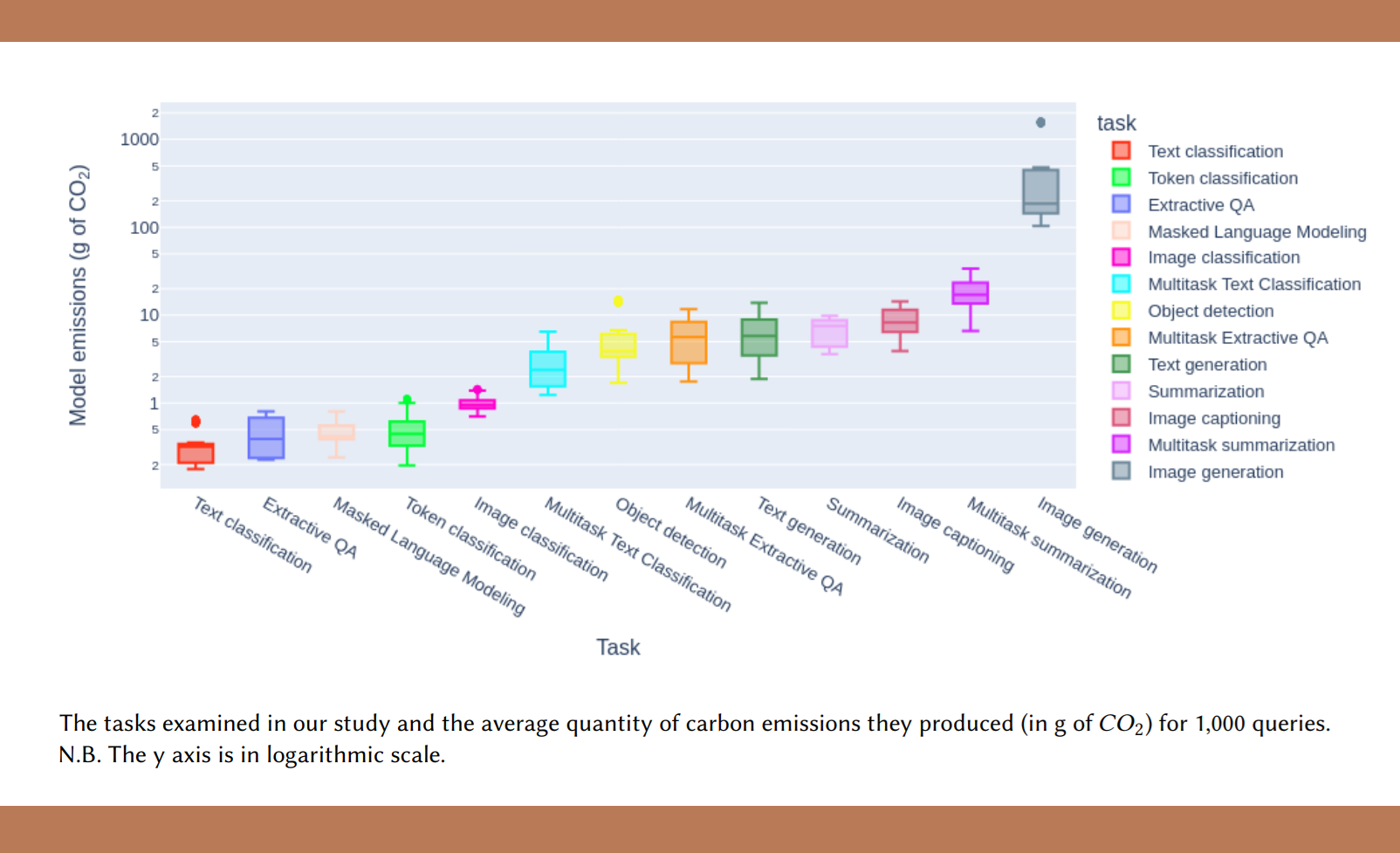Teaming up with Carnegie Mellon University, the brainiacs over at AI startup Hugging Face have stumbled upon a real eye-opener about the eco-impact of artificial intelligence.
When it comes to whipping up images with AI, whether it's for your run-of-the-mill stock photos or those fancy ID snapshots, it's like a gentle nudge to your smartphone's battery. Surprisingly, though, the script flips when you dive into the text-generating realm—turns out it's way thriftier on the energy front, clocking in at just 16% of a full smartphone charge.
Nope, the study's not just about pixels and paragraphs. It's a whole shebang of 13 tasks, from summing up stuff to sorting text. The brainy bunch kept it real by throwing experiments at 88 different models and giving them a spin with 30 diverse datasets. Each task got a grand treatment of 1,000 prompts, all in the name of cracking the code on carbon and figuring out the energy and carbon output during these digital back-and-forths.
The gist of their findings zooms in on the heavy lifting when AI's asked to whip up fresh content—be it words, summaries, captioning pics, or just churning out images. Surprise, surprise! Image-making takes the cake for emissions, while text sorting is the low-energy superhero in this tech showdown.
The researchers aren't pulling punches. They're waving the transparency flag in the machine learning arena, urging the brainy squad and the tech wizards to spill the beans on their models. Why? Because understanding the ins and outs of the AI's environmental ripple effect is key. Sure, charging your phone for a single AI image doesn't seem like a big deal, but when you throw in the crazy usage of models like ChatGPT—10 million users a day and a whopping 100 million monthly users—it's clear that the green impact of AI is no small potatoes.
Read next: AI Will Reduce Work Week to 4 Days by 2033
by Irfan Ahmad via Digital Information World

No comments:
Post a Comment